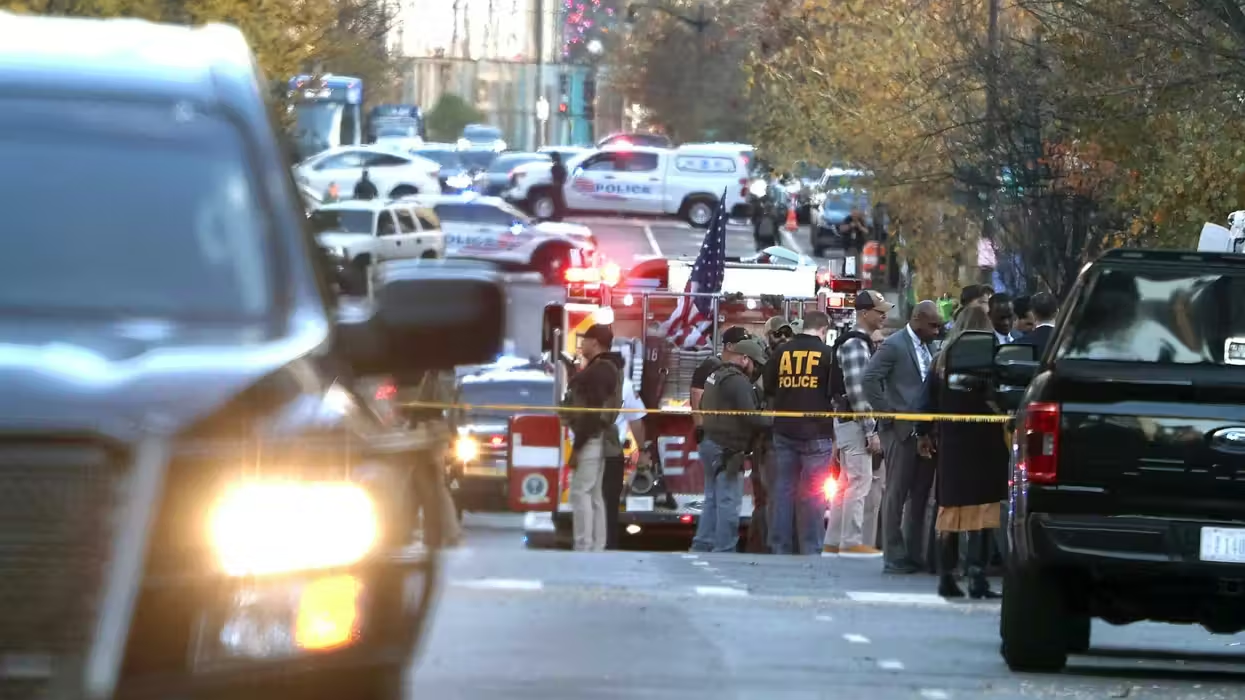CAIRO (AP) -- Prosecutors will investigate allegations that Egypt's ousted president escaped from prison during the 2011 revolution with help from the Palestinian militant group Hamas, officials said Thursday.
Chief prosecutor Hesham Barakat has received testimonies from a court in the Suez Canal city of Ismailia that will be the base for an investigation by state security prosecutors into the jailbreak by Mohammed Morsi and more than 30 other Muslim Brotherhood leaders, according to the officials who spoke on condition of anonymity because they were not authorized to speak to the media.
 Egyptian President Mohamed Morsi (Credit: AFP/Getty Images)
Egyptian President Mohamed Morsi (Credit: AFP/Getty Images)
The question of whether Hamas helped them escape amid the chaos surrounding the 2011 uprising that toppled Hosni Mubarak has been debated in the media for months and proved a political headache for Morsi during his one-year rule as Egypt's first freely elected president. Critics in the opposition and judiciary have suggested that proof of foreign intervention on Egyptian soil could lead to treason charges.
The issue has taken on more significance since Morsi was ousted on July 3 by the military following a wave of protests in which millions of Egyptians called on him to step down. The toppled Islamist leader has been kept at an undisclosed Defense Ministry facility and no charges against him have been announced.
Hamas has denied any role in the Jan. 29, 2011, jailbreak at Wadi el-Natroun prison northwest of Cairo. Morsi and other Brotherhood leaders have said local residents helped them escape after most inmates left the facility.
The investigation stems from a court case against a former inmate, but judge Khaled Mahgoub turned what was in effect a low-profile trial into a public inquiry into the escape by Morsi and the other Brotherhood officials. A series of prison officials, police and intelligence agents testified, some behind closed doors.
In the end, Mahgoub referred the testimonies he collected to the chief prosecutor's office with a request that he investigates the matter further.
In part at least, the trial in Ismailia fits into a picture of strained relations between Morsi and the judiciary after what many judges saw as his encroachment on the independence of the judiciary.
A string of top police, prison and intelligence officials have blamed Hamas, a close ally of Morsi's Brotherhood, saying the militant group sent fighters from the Gaza Strip to join with Bedouins from the Sinai Peninsula to storm prisons and break out the jailed Hamas members.
In Egypt's polarized political climate, opponents of the ousted leader used the issue against him, saying friends of the Brotherhood violated the country's security and fed its instability. The eagerness of some in the intelligence and security agencies to blame Hamas reflect in part resentment of the Brotherhood's ties with the militant group, which they have long seen as a threat.
News of the intended investigation came one day after authorities issued arrest warrants for the Brotherhood's spiritual leader, Mohammed Badie, and nine other Islamists accused of inciting violence after deadly clashes - the latest moves by the new military-backed government as it tries to choke off the group's campaign to reinstate Morsi.
The warrants drew an angry response from the Brotherhood, which said "dictatorship is back" and insisted it will never work with the interim rulers.
U.N. Secretary-General Ban Ki-moon called Egypt's Foreign Minister Mohamed Kamel Ali Amr to express his "deep concern about continued detentions in Egypt and arrest warrants issued against Muslim Brotherhood leaders and others."
Ban said, "There is no place for retribution or for the exclusion of any major party or community in Egypt."
Badie's whereabouts are not known, but many of the others are believed to be taking refuge somewhere near a continuing sit-in by the group's supporters outside the Rabaah al-Adawiya Mosque in an eastern Cairo district that is traditionally a Brotherhood stronghold.
Security agencies have already jailed five leaders of the Brotherhood, including Badie's powerful deputy, Khairat el-Shaiter, and shut down its media outlets.
The prosecutor general's office said Badie, another deputy, Mahmoud Ezzat, el-Beltagy and popular preacher Safwat Hegazy are suspected of instigating Monday's clashes with security forces outside a Republican Guard building that killed 54 people - most Morsi supporters - in the worst bloodshed since he was ousted.
The Islamists have accused the troops of gunning down the protesters, while the military blamed armed backers of Morsi for attempting to storm a military building.
The arrest warrants highlight the armed forces' zero-tolerance policy toward the Brotherhood, which was banned under authoritarian leader Hosni Mubarak.
"This just signals that dictatorship is back," said Brotherhood spokesman Ahmed Aref. "We are returning to what is worse than Mubarak's regime, which wouldn't dare to issue an arrest warrant of the general leader of the Muslim Brotherhood."
Featured image via AP
–
[related]

 Egyptian President Mohamed Morsi (Credit: AFP/Getty Images)
Egyptian President Mohamed Morsi (Credit: AFP/Getty Images)





